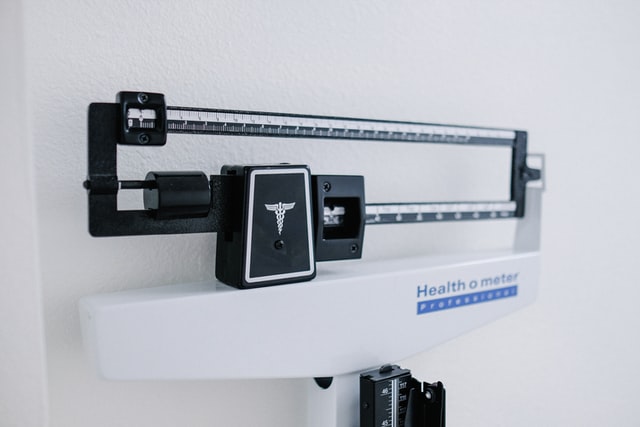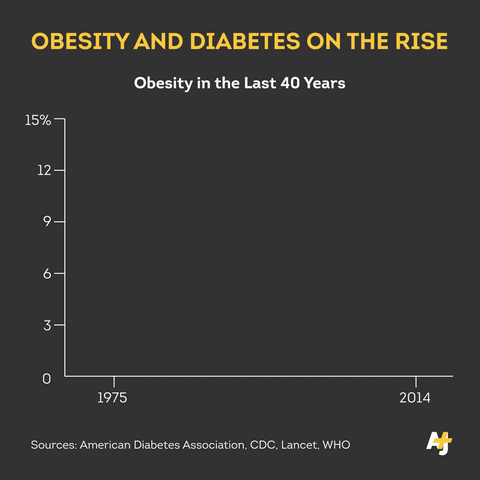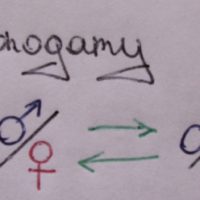

Shame on Us for Not Shaming
My students rarely believe me when I tell them this, but I was once a fat kid. When I was in 8th grade, I actually weighed more than I do now. And though my parents tried to reassure me with the euphemistic understanding that I was really just “pleasantly plump”, a phrase I readily understood to be complete and utter bullshit, let me assure you that the torment and ridicule I got, especially from my peers, was painful and pervasive. Things were different back in those days ,when “body shaming” was a way of life, and I was constantly subjected to the verbal abuse of my classmates, an abuse that left me embarrassed and desperately wanting a change. And for that, I am eternally grateful.
After all, it was that pain and sadness that propelled me to making better choices about my body, and more importantly, my health. Like many of the obese children in our nation today, I was headed down a path towards significant health issues and lower life expectancy, largely predicated on a lifestyle comprised of far too much garbage in my diet and far too little exercise in my daily regimen. For the most part, I subsisted on hot dogs and macaroni and cheese, and ketchup somehow constituted a vegetable. But adolescence can make one painfully self-conscious, and no-one is better at pointing out and accentuating our faults than adolescent boys. So when the torment of my peers finally got be too much, and my dating prospects proved non-existent, I decided once and for all to change my diet and exercise habits, and I’ve never looked back since.
It is with that backdrop then that I suggest that while body shaming may be incredibly hurtful at times, in the end, it may just serve a purpose that has gone notably wanting since it became verboten in the era of hypersensitivity and political correctness. While we may have nothing but good intentions in wanting to shield our kids from the unpleasant emotions of adolescent teasing, we may be exposing them to an even more agonizing life of deleterious health impacts directly related to their weight. Since the rise of a heightened consciousness regarding body shaming in the late 1990’s, the rate of childhood obesity in the United States has ballooned to an astronomical 19.3%. This, of course, has translated to an obesity rate in adults that now stands at over 40%. Freed from the boundaries imposed by societal pressure, less than 1 in 10 kids now eat their recommended daily intake of vegetables and less than 1 in 4 get the exercise needed to maintain a healthy lifestyle.
And slowly, but surely, this is killing us. With obesity tied to higher incidences of diabetes, heart disease, and some types of cancer, our life expectancy has actually decreased for the first time in generations, as even technology and modern medicine cannot make up for the devastating impacts our diet and lack of exercise are having on our life spans. At no point was this more apparent than in the Covid era where obesity was the second-leading corollary to adverse health consequences and death from Covid along with age. But instead of using all that time away from the office and school to get in shape, what did most of America do? Pack on another 20 lbs. and call it the Covid-19!
And before you start telling me about how this is a matter of personal freedom, that folks should have the choice to be fat and unhealthy if they so choose, let me let you in on a little fact that shows just how much the personal health choices of some people impact everyone else. Given the wide array of adverse corollary health impacts, obesity in America costs our already bloated health care system $147 billion each and every year. That means that all the rest of us have to kick in a thousand bucks each year to help offset the cost of other people’s poor diet and lack of exercise. Suddenly, other people’s “freedoms” don’t seem so “free”, now do they?

Yes, I fully understand that socioeconomics and genetics play a significant role in all of this, but in the end, statistics show that both these elements can be mitigated with healthy choices regarding our diet and exercise. If we are going to pour all of that money into health care for obese folks at the lower end of the socioeconomic spectrum, why not move upstream on this issue and start developing education and nutrition programs for underprivileged families so that they can have the resources they need to empower them to make impactful lifestyle choices and start to reign in the personal and societal costs of obesity?
Some of you out there may not be old enough to remember this, but it was only in 1995 that the very first ban on smoking in restaurants went into effect. Over the 25 years since, smokers have been relegated to unpleasant, out-of-the-way outdoor smoking areas, huddled together like expelled refugees freezing out in the cold to get their fix. But back in the 50’s and 60’s smoking was something all the cool kids did to rebel from their parents. Y’all remember Grease, don’t you? But a series of targeted marketing campaigns came in and shamed people out of smoking. The result? Smoking dropped off precipitously from a 1954 high of 45% of the population to just over 16% in 2018. We literally shamed people out of smoking and into better health, all without depriving them of their freedom to make their own choices.
Sure, I understand the impact shaming has on eating disorders, especially with young women, but data suggests that our issues related to obesity far outweigh (no pun intended) the relatively small number of folks who suffer on the other side. Perhaps the pendulum has swung just a bit too far, and a little shaming, focused more on health than physical appearance, could go a long way in stemming the tide of obesity in this country. I am not suggesting that we go back to an era of shaming people based upon physical appearance, especially since body composition can often be genetically predetermined and body shaming can have its own deleterious effects, but I do think we need to distinguish here between shaming over body image and shaming people for making poor behavioral choices. Just as shaming people for smoking cigarettes led to a marked decline in that pernicious habit, so too can shaming be used to discourage unhealthy eating habits and a lack of exercise. Otherwise, we will continue to have a hefty problem on our hands, and all the negative health impacts that go with it.
Steven Craig is the author of the best-selling novel WAITING FOR TODAY, as well as numerous published poems, short stories, and dramatic works. Read his blog TRUTH: In 1000 Words or Less every THURSDAY at www.waitingfortoday.com




I love the ‘us and them’ banter you have gravitated to in your old age, Steve. Just sayin’ like it is. I guess divisiveness is supposed to provoke discussion, but this old friend is finding herself in the ‘them’ category more often than not and don’t have the energy to dispute. Must be my 4 fat kids weighing me down.